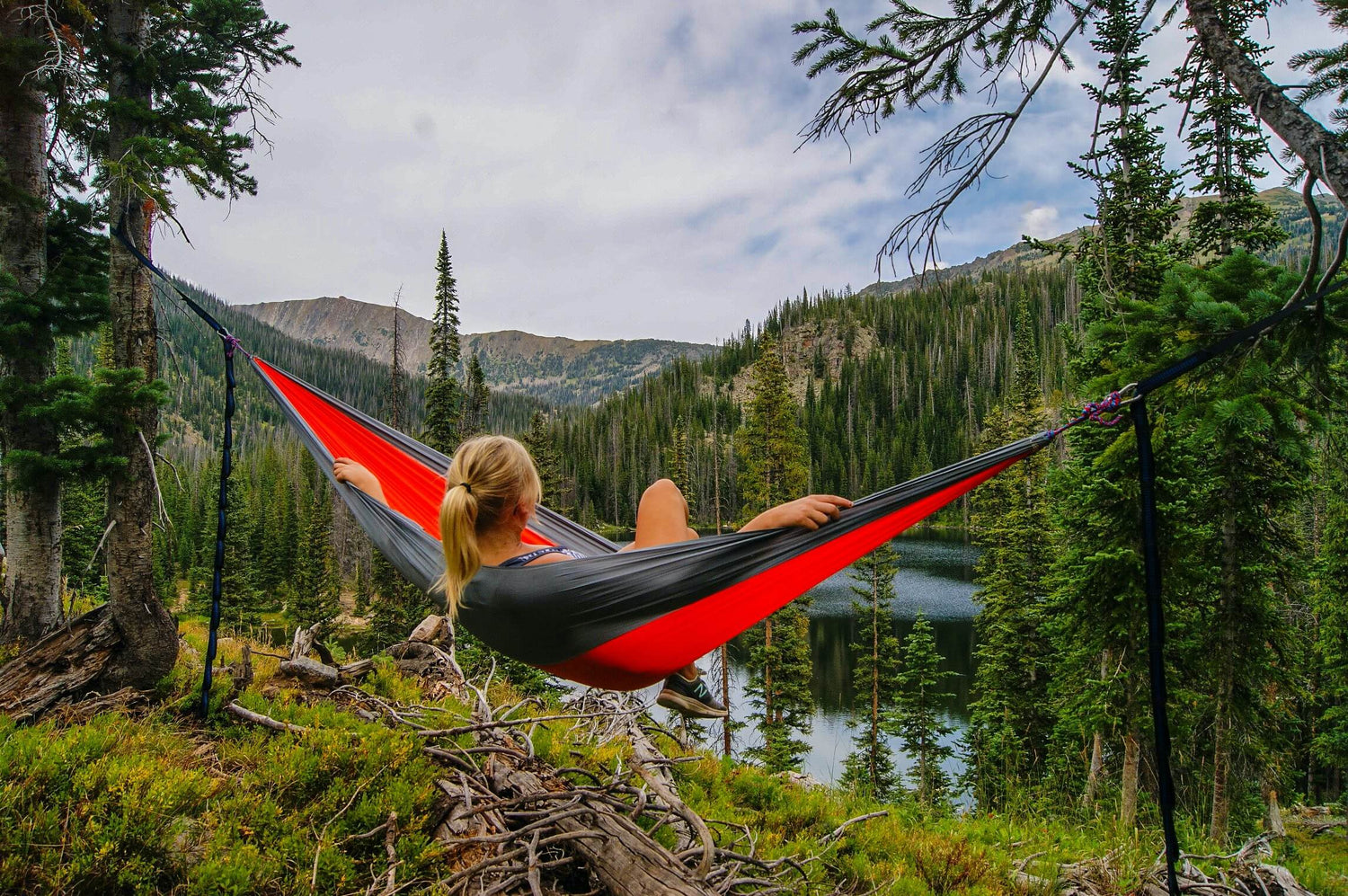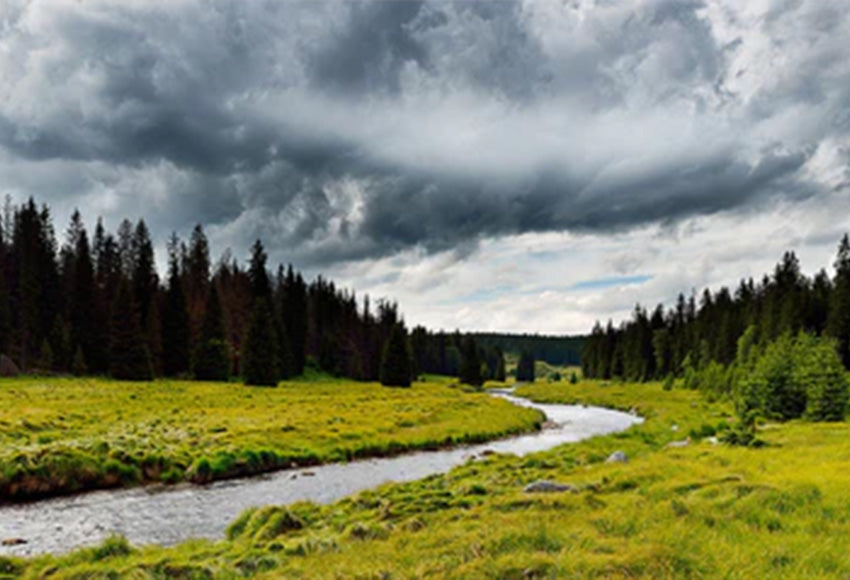Have you heard of the term bivouac? For those of you who are not sure about the term, we have prepared this article that outlines what bivouac is, what the difference is between bivouac, tenting and camping, and also what the approach to bivouac is in the Czech Republic. Let's get started!
Sleeping bag or tent?
Bivouac is, in simple terms, sleeping in the open air. If we expand on this term a little more, it is essentially an emergency overnight stay in nature with reduced comfort. If you are heading to an area where only bivouac is allowed, leave your tent at home and you should be able to make do with just a sleeping bag.
For clarification, it is necessary to distinguish between a few terms that are ultimately similar and can sometimes confuse travelers.

Camping vs. bivouac/overnight stay
- According to the provisions of the Forestry Act No. 289/1995 Coll. and the Nature Protection Act No. 114/1992 Coll., camping is understood as "overnight stay in increased comfort using a shelter, especially a tent, and other accompanying activities, such as food preparation, hygiene, waste disposal, etc.." Camping is therefore not just a sleepover, but also includes activities associated with a sleepover.
- While camping is legally defined as “staying overnight in the open air in reduced comfort without using a shelter, without lighting a fire, and without leaving any trash at the place of stay.” On many treks that are listed in the Adventurer app you will find, there are directly marked places suitable for overnight stays, which means bivouac. So be responsible and respect the laws. Not only will you avoid unnecessarily aggravated situations, but above all you will not harm nature.
- What to combine camping with? Tent, food preparation, washing clothes, personal hygiene, production and subsequent disposal of waste (including biological), increased comfort, fire.
- What to combine bivouac with? No tent, sleeping bag, reduced comfort, only for one night, no fire, no waste (even biological), freedom and liberty.
Since the Adventurer application contains treks from National Parks, Protected Landscape Areas and nature reserves, let's explain the basic rules of conduct in these areas.
Overnight stays in forests and in the Czech Republic
If we get straight to the point – spending the night in the forest is allowed in our territory. Of course, there are certain exceptions here, which can be easily deduced. To be on the safe side, we will repeat the rules of spending the night and moving around in nature:
- Section 63 of the Nature Conservation Act guarantees the right to stay in nature for all citizens. This means the free movement of people through the countryside, regardless of who owns the countryside.
- Exception: built-up and construction land (yards, gardens, orchards, vineyards...)
- Exception: land intended for animal husbandry
- Exception: meadows and arable fields where damage to vegetation or soil could occur during the movement of people or during grazing of livestock
Apart from the aforementioned exceptions, you have the right to move as long as you do not damage the area in any way.
As for forests, you can basically hide your head in the moss anywhere within the normal right to enter the forest (forest use).
It is also permitted to pick mushrooms and wild berries in the forest and to take away brushwood up to 7 cm in diameter that is dry, without bark and lying on the ground. However, what is not permitted, and you should respect this, is to damage the forest and to light or maintain an open fire up to 50 meters from the forest edge.
However, be careful about one thing: overnight stays may be restricted during times when access to the forest is restricted, as we can learn from the Forest Administration, this is mainly due to necessary forest maintenance, logging, or hunting. This information is always necessary to find out before entering a certain area, and if it is explicitly written on the road that entry to a given area is prohibited – it is obligatory to respect this provision in the interest of our health. You definitely don't want a hunter to mistake you for a pheasant and shoot at you, do you? Safety above all, adventurers!

Overnight stay in the PLA
In the case of bivouac in a protected area, we will follow the already mentioned Act No. 114/1192 Coll. on Nature and Landscape Protection. It contains things that are explicitly prohibited, such as "camping and making fires outside of places reserved with the consent of the nature protection authority throughout the territory of a national park (NP), protected landscape area (PLA) and national nature reserve (NPR)".
Simply put – you can sleep almost anywhere for a single night, as long as you leave no traces behind, leave the place you slept in as soon as possible in the morning, and do not damage the nature around you. This includes, above all, lighting a fire.
The above applies generally to protected areas, but it is important to know that national nature reserves (NPR) may be located on the territory of protected areas, in which the rules do not differ from those of the National Park, and according to Act No. 114/1992 Coll., movement outside marked paths is also prohibited here.
Representatives of individual PLAs agree that NPRs are often the most attractive locations. In the Adventurer application, you will only find places that are suitable for overnight stays and do not violate any law or threaten nature. Our main goal is to preserve nature in the best possible condition for future generations.
Overnight stay in the National Park
In the national parks, of which there are four in the Czech Republic (Krkonoše, Šumava, Bohemian Switzerland, Podyjí), the strictest rules apply. You can primarily move around only on marked trails.
The Nature and Landscape Protection Act indirectly prohibits overnight stays, in the form of a ban on public access to the landscape outside marked tourist routes, specifically to the 1st zone of the National Park with a possible extension to the entire territory of the National Park (outside the built-up areas of municipalities).
The main reason for this restriction is the risk of damage to the area. This is understandable, of course, given that national parks are protected primarily because of the unique flora and fauna that are unique to the area and could be disturbed by human presence.
The Šumava National Park administration has taken a great approach by building emergency shelters along the main red route, where you can pitch a tent or set up a bivouac. These shelters are undoubtedly a way to open the Šumava National Park to more people and make it much more accessible. Emergency shelters are only for overnight stays, so for one night.
The Czech Switzerland National Park has completely banned all overnight stays, where overnight stays have been prohibited since 2000, not only in the visitor regulations but also by law. The reason is primarily the disturbance of more sensitive animal species by human presence.
In the Krkonoše National Park, you have a dense network of mountain huts where you can always spend the night.
How to do it? Choosing the right equipment
Now that we've explained where you can bivouac and where it's better to avoid it, let's talk about what you need for a trek that involves sleeping under the open sky.
As already mentioned, you must not light a fire when bivouacing, which suggests that we will need to somehow manage the heat that the fire radiates. A well-chosen sleeping bag will help with this, the specifications of which should correspond to the relevant weather and temperatures that occur on the trek. So you definitely do not need to take an extra warm sleeping bag for a trek in the Jizera Mountains in the summer, but there are certainly areas where this sleeping bag will come in handy.
A great choice for people who don't want to lug around unnecessarily heavy things and want to enjoy the trek as "lightly" as possible is the so-called "snow bag". This is a waterproof bag into which you put a sleeping bag and a sleeping mat. Thanks to the bag, you are protected from the rain without having to carry a tent with you. The snow bag can be set up anywhere and is significantly lighter than a tent.
An adventurous choice can also be a hammock, which you can simply stretch between two trees and you're ready to sleep.

You want to cook something, but you can't start a fire, how do you do that? You should also buy a quality gas stove. There are a really wide variety of them on the market, so you definitely have plenty to choose from. Using a stove is very simple and quick. In addition, unlike starting a fire, you don't have to clean the fire pit or spend time collecting wood. A gas stove is therefore an essential base for bivouacs. However, be careful, in some areas it is not allowed to use this helper either.
Pay attention to your packing and pack wisely. Bivouac is all about freedom and liberty, so leave the things you don't need at home. You'll see how much relief you'll feel! Bivouac is a great way to connect with nature and escape the everyday stress that modern life brings.
You will need a sleeping bag, a sleeping mat and a gas stove for cooking, and a raincoat for protection from the rain. And that's it! Sleeping in the open air has its own charm and if you are well equipped, you will save yourself a lot of unnecessary extra burden.




Leave a comment
All comments are moderated before being published.
This site is protected by hCaptcha and the hCaptcha Privacy Policy and Terms of Service apply.